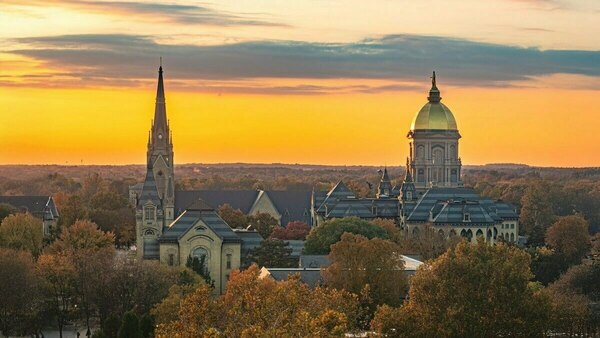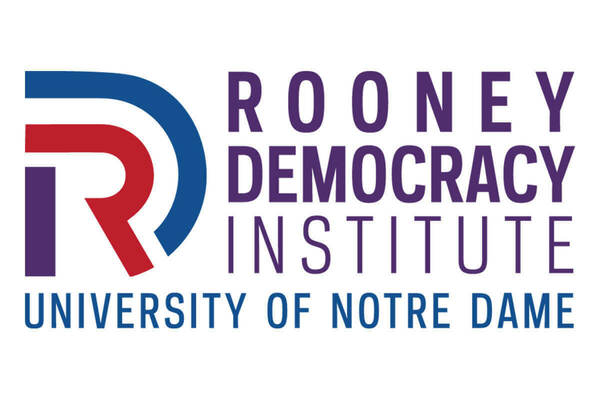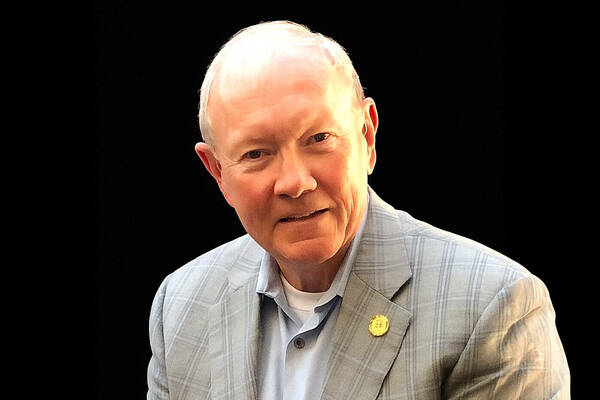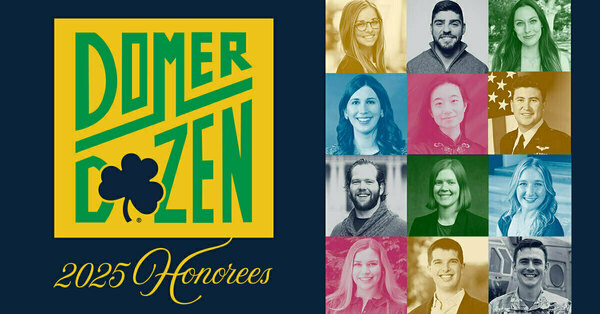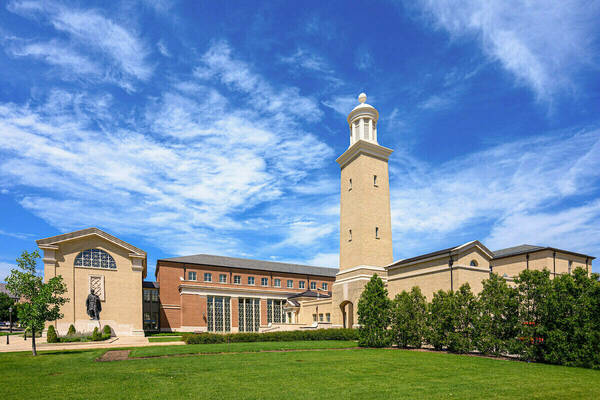In memoriam: Rev. Gustavo Gutiérrez, O.P., renowned Notre Dame theologian, father of ‘liberation theology’

In his 1971 book “A Theology of Liberation: History, Politics, and Salvation,” the Peruvian Dominican priest and University of Notre Dame theologian Gustavo Gutiérrez called on Christians to accompany and learn from the impoverished among us, significantly advancing the concept known as the preferential option for the poor.
Now, more than 50 years later, Father Gutiérrez’s landmark volume and the liberation theology movement he inspired has more than stood the test of time and is regarded by many as one of the 100 most important theological works of the 20th century. In 2021, Michael E. Lee, who earned Notre Dame graduate degrees under Father Gutiérrez and is now a professor of theology at Fordham University, put it this way: “In the way that it offers both a diagnosis of our world’s ills and a vision for the way that the church can help transform them, ‘A Theology of Liberation’ remains as relevant today as it was half a century ago.”
Rev. Gustavo Gutiérrez, O.P., professor emeritus of theology at Notre Dame and widely regarded as the “father of liberation theology,” died Tuesday (Oct. 22) in Lima, Peru. He was 96.
“Father Gustavo was a beloved member of the Notre Dame community, and we join with his family and fellow Dominicans in giving thanks to God for his extraordinary life," said University President Rev. Robert A. Dowd, C.S.C. “His invaluable contributions as a scholar and theologian and his commitment as a priest to living out the Gospel Call are an inspiration to us all.”
Rev. Daniel Groody, C.S.C., professor of theology and global affairs and vice president and associate provost for undergraduate education at Notre Dame, said of the work of his friend and colleague: “The heart of a ‘Theology of Liberation’ is God’s love, God’s life and God’s creation. What was most important for Gustavo was not liberation theology, but the liberation of people. He combined a profound sense of the unmerited gift of God’s love with the urgency of solidarity with those society considers the least important.”
Born in Lima, Father Gutiérrez initially planned to become a psychiatrist and studied at the National University of San Marcos in Peru and l’Université Catholique de Louvain in Belgium. Sensing a call to the priesthood, he took up philosophical and theological studies at l’Université Catholique de Lyon in France. He was ordained a priest in the Diocese of Lima in 1959 and returned to his hometown to serve in a parish and teach at the Pontifical Catholic University of Peru. He entered the Order of Preachers (the Dominicans) in 2001, and soon after began teaching at Notre Dame, where he held the title of John Cardinal O’Hara Professor of Theology. He lived for the last several years in Lima.
In addition to theology and philosophy, Father Gutiérrez examined throughout the 1960s the work of a wide range of secular thinkers. The sum of his study, as well as his understanding of the Gospel message and personal experience with poverty in Peru, influenced his thoughts on socio-economic inequality, leading to his groundbreaking book, first published in Spanish in 1971 and, two years later, in English and other languages.
In response to the God who first loved us in our poverty, Father Gutiérrez wrote that liberation theology seeks to articulate the gift of Christian faith and the corresponding demand to create a world that reflects God’s care for it. This, he said, entails reordering the world through the promotion of social justice and, especially, accompaniment of the poor and vulnerable.
That vision — which has always been at the heart of Christianity — challenged social norms and conventional theological paradigms, creating controversy inside and outside the Catholic Church. The Vatican’s Congregation for the Doctrine of the Faith, led by then-Cardinal Joseph Ratzinger (later Pope Benedict XVI), investigated Father Gutiérrez’s theology, and, while the resulting teachings challenged the abuses of liberation theology that some proposed, the centrality of liberation in the life of faith was reaffirmed by the Vatican and Father Gutiérrez’s writings were cleared of any doctrinal error.
While some have maintained their suspicions of liberation theology, the criticisms within the official Church had largely dissipated by 2014 when Father Gutiérrez received a warm and enthusiastic ovation when introduced at a Vatican ceremony celebrating the publication of “Poor for the Poor: The Mission of the Church,” a book to which he contributed two chapters and for which Pope Francis wrote the introduction.
Father Groody noted that the driving force behind Father Gutiérrez’s theology was not secular or political ideology, but rather a spiritual vision, flowing from God’s utterly gratuitous love for all human beings. He lamented the fact that so few people “know the profound spirituality that forged Father Gutiérrez’s theological vision.”
In part to address past misunderstanding and misinterpretation, Father Groody in 2011 selected, edited and arranged excerpts of Father Gutiérrez’s most significant spiritual works in an anthology that includes “On Job: God-Talk and the Suffering of the Innocent,” “We Drink from Our Own Wells: The Spiritual Journey of a People” and “The God of Life.”
For his part, Father Gutiérrez once said: “The theology of liberation is about God. God’s love and God’s life are, ultimately, its only theme.”
Father Gutiérrez was the recipient of numerous awards, including the Legion of Honor from France, and he was inducted in 2002 into the American Academy of Arts and Sciences, the nation’s leading learned society. Leo Guardado, an assistant professor at Fordham who studied under Father Gutiérrez at Notre Dame, has worked with him on the completion of his final book, to be published in coming months.
While working on the anthology, Father Groody asked his friend and colleague how he would like his life and work to be remembered.
After first demurring, Father Gutiérrez said: “I hope my life in the end tries to give testimony to the message of the Gospel: Above all, that God loves all people, especially those that the world considers most insignificant.”
Latest University News
- Notre Dame’s Kellogg Institute partners with Vanderbilt University to launch 2025-26 democracy surveyThe University of Notre Dame’s Kellogg Institute for International Studies and Vanderbilt University’s Center for Global Democracy are partnering to advance one of the world’s leading surveys on attitudes toward democracy. Starting in October, the Center for Global Democracy, with support from the Kellogg Institute, will conduct the 2025-26 round of the AmericasBarometer, which tracks public opinion on democracy in 20 countries across the Americas.
- Francis and Kathleen Rooney make transformative gift for Notre Dame institute focused on democracy research and educationFrancis and Kathleen Rooney of Washington, D.C., and Naples, Florida, have made a gift to the University of Notre Dame to endow an institute in the College of Arts & Letters committed to the preservation of American democracy through research, teaching and public engagement. The Rooney Democracy Institute, formerly known as the Rooney Center for the Study of American Democracy, aims to advance Notre Dame’s role as a national and global leader in democracy scholarship and as a convener of bipartisan conversations about the future of democracy.
- Gen. Martin Dempsey to speak at Notre Dame Forum event on ‘Hope, Global Stability and the Role of the United States’Gen. Martin Dempsey, the retired 18th chairman of the Joint Chiefs of Staff, will join University President Rev. Robert A. Dowd, C.S.C., for a fireside chat at 4 p.m. Friday (Oct. 10), as part of the 2025-26 Notre Dame Forum. The discussion, titled “Hope, Global Stability and the Role of the United States,” is part of the exploration of this year’s Notre Dame Forum theme, “Cultivating Hope.” It will take place in Rooms 215/216 of McKenna Hall and will also be livestreamed. The event is free and open to the public.
- University of Notre Dame joins the Global Coalition of Ukrainian StudiesThe University of Notre Dame has joined the Global Coalition of Ukrainian Studies after signing a memorandum of cooperation, formalized Sept. 24, at the Ukrainian Institute of America in New York City. Notre Dame joined four other American institutions that were also publicly welcomed to the coalition at this event: Arizona State University, Columbia University, Manor College and the Shevchenko Scientific Society.
- Alumni Association and YoungND honor 2025 Domer DozenThe Notre Dame Alumni Association announced its 2025 Domer Dozen cohort, honoring 12 graduates ages 32 and younger for excellence in their contributions in learning, service, faith and work — the core pillars of the association’s mission.
- Notre Dame School of Architecture poised for global leadership through historic investmentThe $150 million gift represents an unprecedented commitment in the 160-year history of American architectural education. In recognition of this landmark gift, the school will be renamed the Matthew and Joyce Walsh School of Architecture at Notre Dame.








